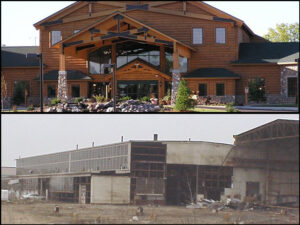Upcoming Remediation and Redevelopment External Advisory Group (RR EAG) Meeting
The Wisconsin Department of Natural Resources (DNR) will host a meeting of the RR EAG on July 17, 2025. The RR EAG was formed to address a broad range of issues, encompassing technical and policy topics related to encouraging the investigation, cleanup and redevelopment of contaminated sites in Wisconsin. RR EAG meetings are open to the public.
The agenda and meeting materials will be posted in advance on the DNR’s RR EAG webpage.
Registration Open for Session 2 of the Back to Basics Training Series: Investigation, Sampling and Lab Data
The Back to Basics training series will be presented in conjunction with the RR EAG meetings throughout 2025 and early 2026. Each session of the series provides information and practitioner perspectives on the investigation and cleanup of contaminated properties.
Individuals involved in or affected by the investigation and cleanup of environmental contamination and the redevelopment of contaminated properties are encouraged to attend, including environmental consultants, developers, attorneys, responsible parties, local governments, property owners, and those affected by contamination in their communities.
The session on July 17, Back to Basics: Investigation, Sampling and Lab Data, will provide an overview of site investigation, offer best practices for sampling and share information about working with a lab and understanding lab results. Topics and presenters include:
- NR 700 Process Overview – Jodie Thistle, DNR
- Site Investigation Toolkit – John Sager, DNR
- Preparing for the Field: Sampling Best Practices – Adam Roder, Geosyntec
- Working with the Lab and Understanding Lab Results – Jeff Ramey/Krzysztof Trafalski, Langan Engineering & Environmental Services
- Comparing Sampling Results with Standards – Erin Endsley, DNR
- Tips from RR Program supervisors – Michele Norman, DNR
- Moderated discussion with presenters – Bill Nelson/Derek Punches, Godfrey & Kahn
Information and registration for future Back to Basics training sessions are posted on the RR Program Presentations & Trainings webpage.
Attending on July 17
In-person and virtual attendance options are available for both the training and for the RR EAG meeting.
Schedule
9:00 to 9:30 a.m. In person arrival and coffee with the DNR
9:30 to 11:30 a.m. Back to Basics: Investigation, Sampling and Lab Data
12:30 to 2:30 p.m. RR EAG Meeting
In-person attendees will have an opportunity to meet and greet regional DNR staff members from the RR Program; RSVP to Coreen Fallat at CoreenR.Fallat@wisconsin.gov by noon on July 15, 2025.
Attend in-person in Madison, Milwaukee or Superior:
State Natural Resources Building (GEF 2)
Room G09
101 S. Webster St.
Madison, WI
Wisconsin DNR – Milwaukee Service Center
1027 West St. Paul Ave.
Harbor Room, Rm 107
Milwaukee, WI
Wisconsin DNR – Superior Field Office
Lake Superior Conference Room
1701 N 4th St.
Superior, WI
Attend via Zoom: Register to attend by Zoom [exit DNR]

